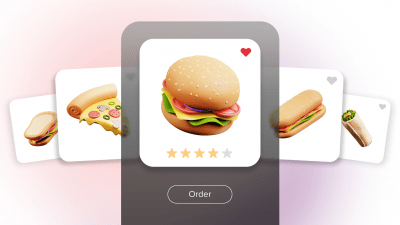Last Updated on: 26th May 2024, 07:18 pm
Video advertising combined with contextual targeting has become really popular these days. The growing popularity of advanced technologies (such as artificial intelligence and Deep Learning) brought contextual targeting back on top again and put it among the most popular targeting approaches. Would you like to learn if it is worth using both video ads and contextual targeting?
In this article, you will learn about:
- Why you should invest in video advertising
- Contextual targeting, and why is it an efficient way of targeting your video content
- The advantages of leveraging contextual targeting
- How combining video ads and contextual targeting can work for your benefit.
Table of Contents:
- Branding campaign and contextual targeting – what are they?
- Contextual targeting advantages for video advertising
- How does the combination of video ads and contextual targeting work for your benefit?
The digital advertising landscape has changed extremely in the last few years. Nowadays, brands focus a lot on the users’ experiences and expectations. Companies create breathtaking videos to promote their products, ideas, and values. Choosing video ads as one of your main forms of advertising is one thing. You also have to consider which solutions will help you reach the right audience most efficiently. One of the topics frequently discussed by professional marketers is contextual advertising. Together with video advertising, it can really improve your brand visibility.
Branding campaign and contextual targeting – what are they?
Properly planned and executed video advertising may help you outrun your competition in terms of brand visibility. The first thing is, of course, your ads’ quality. Before you invest in advanced promotion solutions, make sure that your videos stand out from the video creations of your competition. Are your video ads of high quality, the right length and send a proper message? You should now consider different techniques of promoting your video content among potential customers.
Various advertising channels are available. You can publish video ads on websites, in applications or on social media. In fact, there are multiple solutions to promote your video ads effectively. In order to do so, you should first learn as much as possible about various techniques that can help you optimize your marketing campaigns.
Branding campaign definition
You can conduct your branding campaigns in the form of streaming video ads. Web and mobile video advertising allows brands to provide an audience with essential information about the brand and its products (or services) in a short time. This is possible thanks to stimulating users with both sounds and images.
You can place your video ads on websites and mobile applications. The high quality and properly chosen values presented in your video ad are just the beginning. You should also consider creating personalized videos to make sure that you are reaching the right audience with the right message. Video advertising is becoming more important, because a new generation of users prefers visual and audio content over text, and they tend to focus for a short period of time.
Contextual targeting definition
Due to a wide choice of marketing solutions available for the brands, selecting the right ones may not be easy. Some of them are powered by advanced technologies, such as artificial intelligence. Contextual targeting is a great example. It enables more efficient, more accurate ads targeting and significantly improves the cost-effectiveness of campaigns.
But how does it work? The goal is to show the relevant offer to the right person, who interacts with a particular content. Contextual advertising allows for the automatic display of ads based on a website’s content, so the ads presented to the user are adjusted to the original users’ searches and interests at the very moment. An AI-powered solution analyzes the website’s URL, content category, text, and even images to learn the contextual relevance of a certain page and shows the ads that will refer to the website’s content in some way. By using contextual targeting, companies can reach the proper target groups with the proper message, hence the marketing budget is used more effectively.
Contextual targeting advantages for video advertising
Advertisers want to target groups of users that may potentially be interested in their products or services. Contextual targeting enables more natural and non-aggressive advertising. The popularity of this method has become less relevant due to the boom of leveraging 3rd-party cookies. At present, more intensive Deep Learning development has brought renewed interest in targeting based on context. Additionally, Google is removing 3-rd party cookies from Chrome, which results in the even higher popularity of contextual targeting.
A brand’s reduced risk
Displaying inadequate content is an important problem that video publishers are trying to solve – sometimes video ads are presented in applications and on websites that have nothing in common with the content we are interacting with at the moment. Firstly, the display of totally random ads can be annoying for potential users, Secondly, it is not really likely that they will be effective. Imagine that you are reading travel tips on some blog and you suddenly see a video of an online clothing store. Users might be frustrated with such a non-related ad disturbing their reading and may spark negative associations with your brand. Contextual targeting reduces this risk by showing ads related to the website’s (or app’s) basic content.
Better customer experience
Since we mentioned how it actually works, it would be good to point out that contextual targeting not only prevents the development of negative emotions for the brand, but can also make users think positively about your brand. Why is that? Contextual segmentation allows exceptional experiences to be generated for the audience. By leveraging this targeting technique, ads publishers provide users with video content they might be actually interested in. This way the websites bring additional value to the users.
Contextual targeting also increases the chance that a potential customer will actually take interest in the content. Imagine that a user is reading an article about new technological solutions in smartphones. It is likely that they will spare some time to watch your video ad about the new version of your smartphone if it appears on the website.
Thanks to the contextual targeting, specific content can be presented to users that will appreciate it the most. Using this technique increases the likelihood of taking interest in your video and watching it from the beginning to the end by your user. That improves your advertising results (CPCV or VCR – depending on what metric you use to assess the efficiency of the campaign) will enable you to send your message to the potential customer and turn them into an actual customer. We offer contextual targeting combined with streaming video ads services. RTB House’s Deep Learning solutions can provide you with 50% more value than traditional, legacy marketing tools.
How does the combination of video ads and contextual targeting work for your benefit?
We support our streaming video ads services with contextual targeting techniques in order to help brands outrun the competition and present their amazing videos to potential customers. Many companies try to reach a huge audience, but are they reaching the right group of people? This is, in fact, the secret of a brand’s success.
If you want to communicate more efficiently with your target group, you should display video ads on the websites they may actually visit – websites (or mobile apps) that are related to your industry and services. This way, you make sure that your video ads are displayed on the websites that have something in common with your offer. As the ads correspond with the website’s content, you improve the experiences of the customers that see your brand creations. Thanks to the content consistency (the ad is related to the site content), fewer negative emotions appear during contact with ads. The elimination of the ad fatigue effect (which is a growing problem in advertising) as well as targeting improvement results in the improved efficiency of your campaigns.
If you have any questions, comments or issues, or you’re interested in meeting with us, please get in touch.





